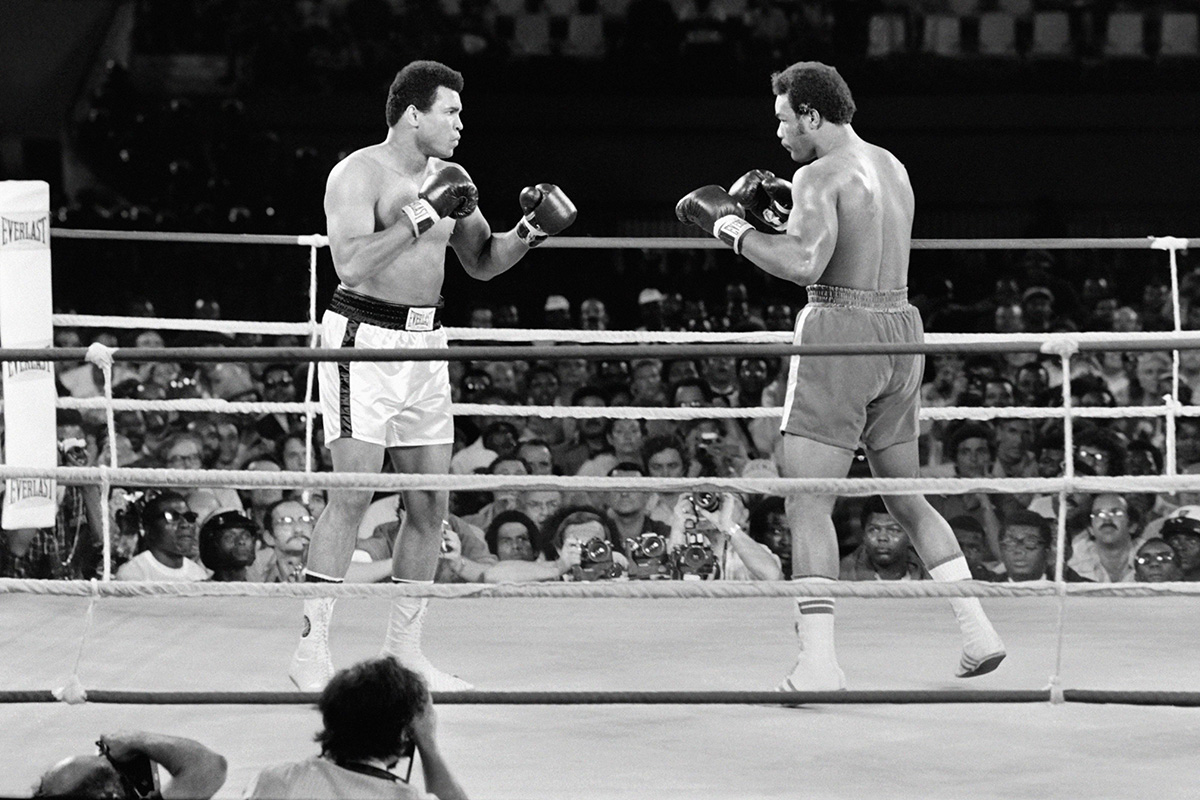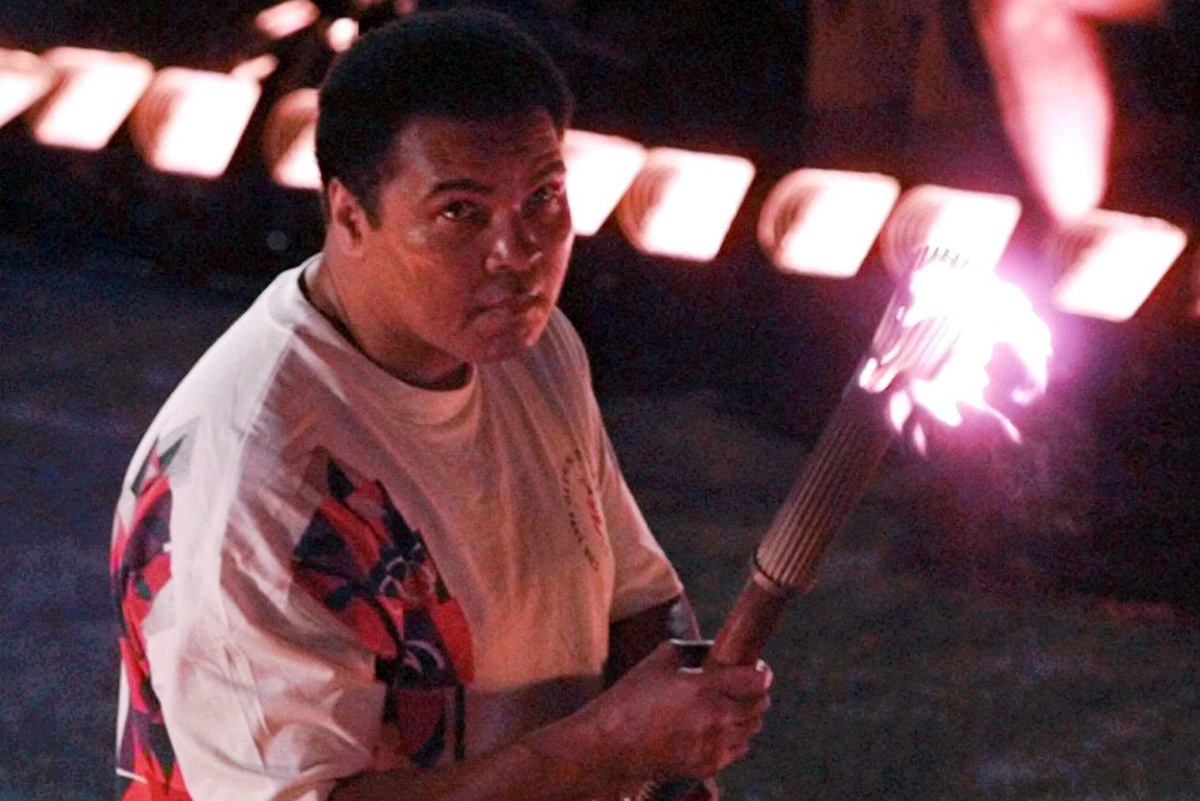Muhammad Ali died Friday at the age of 74.

While he will go down in history as one of the greatest boxers and athletes of all time, he will also be remembered for his life outside of the ring as well.
What follows is a timeline of the life of one of the world’s most beloved figures.
Jan. 17, 1942: Born Cassius Marcellus Clay Jr. in Louisville, Kentucky.
WATCH: ‘My brother is gone’: Muhammad Ali’s brother tears up as he remembers boxing legend

Sept. 5, 1960: At the 1960 Summer Olympics in Rome, Ali wins the gold medal over.
READ MORE: Muhammad Ali: Worldwide reaction to the death of ‘The Greatest’
Oct. 29, 1960: Pro debut – Wins six-round decision over Tunney Hunsaker, a journeyman boxer who had a record of two wins and five losses at the time. While he was no champion pugilist, Hunsaker would go on to a storied career in law enforcement, eventually being inducted into the Law Enforcement Hall Of Fame.
WATCH: Louisville Mayor pays tribute to Muhammad Ali

Feb. 25, 1964: Ali vs. Sonny Liston –Ali would win his first heavyweight title at the age of 22, knocking off a legend in Sonny Liston. The Champion was heavily favoured heading into the contest but the match ended after six rounds due to a TKO. Liston could not handle Ali’s speed, left jabs and quick rights to the head.
1964: Between his first and second meetings with Liston, Ali would join the Nation of Islam and change his name from Cassius Clay to Muhammad Ali.
May 25, 1965: Ali vs. Sonny Liston 2 – The rematch only lasted two minutes as Liston went down early (and easily.)
WATCH: ‘Muhammad Ali was a hero of mine’: Bernie Sanders pays tribute to boxing legend

Nov. 14, 1966: Ali vs. Cleveland Williams – The two would battle before 35,000 people at the Astrodome in Houston. Many consider it to be Ali’s best fight, with legendary sports journalist Howard Cosell later saying, “The greatest Ali ever was as a fighter was against Williams. That night, he was the most devastating fighter who ever lived.”

Get daily National news
March 22, 1967: Ali fights Zora Folley. It would be his last match until October 1970.
READ MORE: The quotable Muhammad Ali: The Greatest’s most famous sayings
June 20, 1967: At the age of 25, Ali is convicted of draft evasion, sentenced to five years in prison and fined US$10,000. He would spend the next several years in appeals court, battling the justice department over the issue before eventually winning. At the same time, every U.S. state boxing federation stripped him of his licence and his passport was revoked, sidelining his boxing career while he was in his prime.
Oct. 26, 1970: Ali vs. Jerry Quarry. The 29-year-old Ali knocks off the rust with a win over Quarry in three rounds.
March 8, 1971: Ali vs. Joe Frazier. The two would battle for the unified heavyweight title in a contest known as “The Fight.” Ali’s treatment of Frazier heading into the fight was nothing less than atrocious as he would call his opponent “dumb” and “ugly.” Frazier never forgave him. Ali would debut his “rope-a-dope” strategy but was handed his professional defeat by Frazier.
Oct. 30, 1974: Ali vs. George Foreman “The Rumble in the Jungle” would take place in Zaire. The buildup to the fight included a three-day music festival featuring James Brown, B.B. King and The Spinners. Ali was seeking to become the undisputed heavyweight champ for a second time. Ali used the “rope-a-dope” to tire Foreman, eventually knocking out an exhausted Foreman in the eighth round.
Oct. 1, 1975: Ali vs. Frazier for a third time. Ali defeated Frazier in the rematch in 1974 so this one was the rubber match. The fight was held in the Phillipines, a follow-up to the ‘Thrilla in Manilla’. It was a brutal affair which lasted 14 rounds. It was stopped when Frazier’s trainer wouldn’t allow him to come out for the last round.
Sept. 15, 1978: Ali vs. Leon Spinks for a second time. Ali had not lost in five years, beating Foreman, Frazier and others during his winning streak, before an upset loss to untested and largely unknown Leon Spinks on Feb. 2, 1978. Ali relied on veteran guile to beat Spinks in a one-sided decision. In doing so, he would win his third heavyweight title.
Oct. 2, 1980: Ali had retired in June 1979 but within months began plotting his comeback. Ali had begun taking a drug called Thyrolar for a thyroid imbalance, and he would blame it for feeling slow and weak during the fight. Outside observers said he simply looked old. In any case, Ali was toyed with the same way he used to toy with others. Larry Holmes delivered a savage beating, and Ali’s trainer finally refused to let Ali answer the bell for the 11th round.
READ MORE: Muhammad Ali, who riveted the world as ‘The Greatest,’ dies
1984: Ali diagnosed with Parkinson’s disease. He would raise funds to help establish the Muhammad Ali Parkinson Research Center in Phoenix
WATCH: ‘Last night a friend of mine died’: Bill Clinton remembers Muhammad Ali

July 19, 1996: In a moving moment, Ali carries the Olympic torch and ignites the cauldron to open the Summer Olympics in Atlanta.
1998: Ali is chosen to be “UN Messenger of Peace.” The UN website reads, “Over the years Mr. Ali has been a relentless advocate for people in need and a significant humanitarian actor in the developing world, supporting relief and development initiatives and hand-delivering food and medical supplies to hospitals, street children and orphanages in Africa and Asia.”
Nov. 14, 2005: Ali awarded the Presidential Medal of Freedom by George W. Bush.
July 27, 2012: Ali is title bearer of the Olympic Flag during opening ceremonies of 2012 Summer Olympics in London.
WATCH: Tributes are pouring in from around the world, including from Bill Clinton and Don King, following the death of boxing legend Muhammad Ali, 74. Aarti Pole reports.

June 3, 2016: Ali dies at the age of 74 from respiratory conditions.
With files from Associated Press










Comments